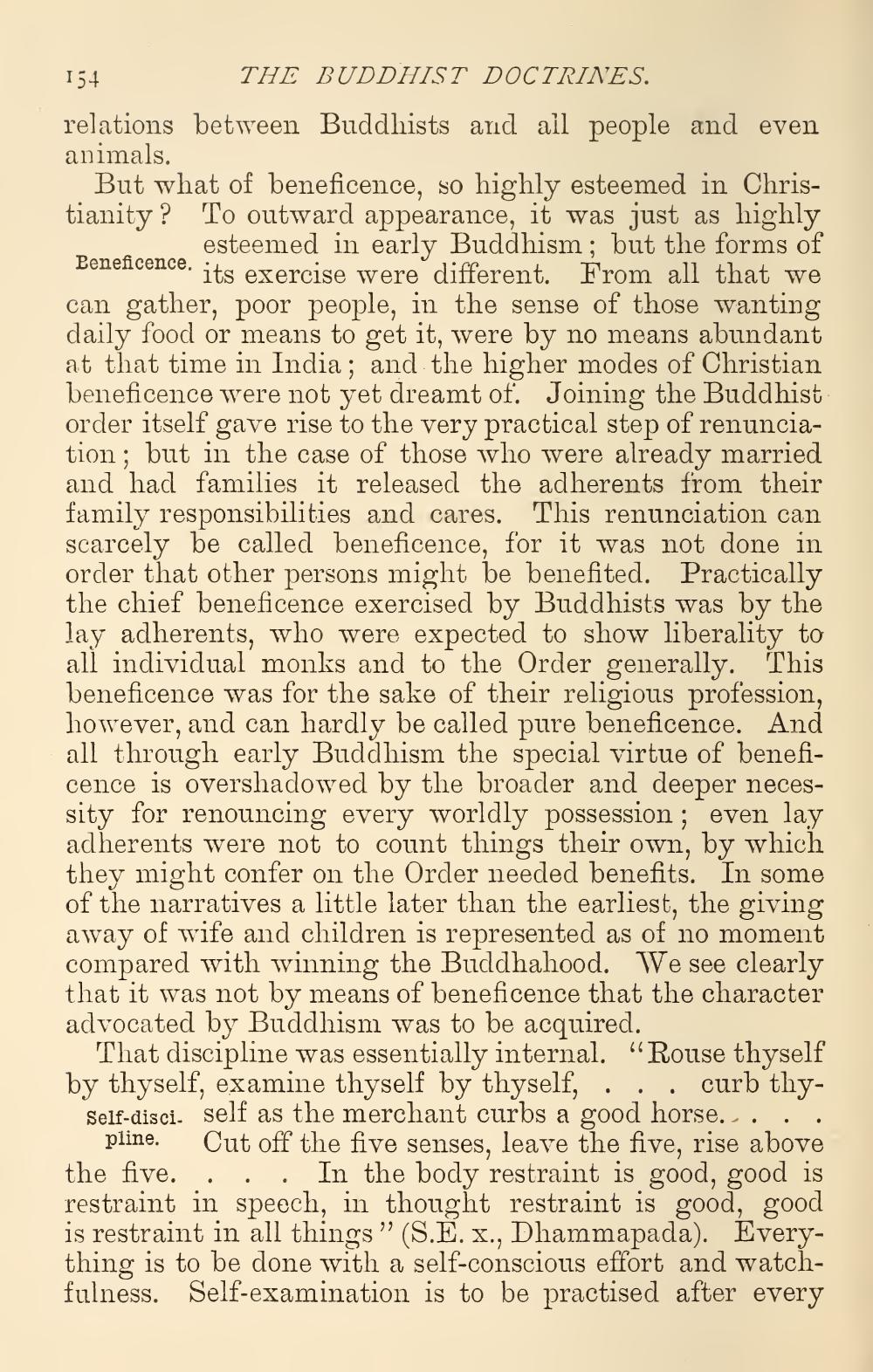________________
154
THE BUDDHIST DOCTRINES. relations between Buddhists and all people and even animals.
But what of beneficence, so highly esteemed in Christianity? To outward appearance, it was just as highly
esteemed in early Buddhism; but the forms of Eeneficence. its exercise were different. From all that we can gather, poor people, in the sense of those wanting daily food or means to get it, were by no means abundant at that time in India, and the higher modes of Christian beneficence were not yet dreamt of. Joining the Buddhist order itself gave rise to the very practical step of renunciation; but in the case of those who were already married and had families it released the adherents from their family responsibilities and cares. This renunciation can scarcely be called beneficence, for it was not done in order that other persons might be benefited. Practically the chief beneficence exercised by Buddhists was by the lay adherents, who were expected to show liberality to all individual monks and to the Order generally. This beneficence was for the sake of their religious profession, however, and can hardly be called pure beneficence. And all through early Buddhism the special virtue of beneficence is overshadowed by the broader and deeper necessity for renouncing every worldly possession ; even lay adherents were not to count things their own, by which they might confer on the Order needed benefits. In some of the narratives a little later than the earliest, the giving away of wife and children is represented as of no moment compared with winning the Buddhahood. We see clearly that it was not by means of beneficence that the character advocated by Buddhism was to be acquired.
That discipline was essentially internal. "Rouse thyself by thyself, examine thyself by thyself, ... curb thySelf-disci. self as the merchant curbs a good horse. . . .
pline. Cut off the five senses, leave the five, rise above the five.... In the body restraint is good, good is restraint in speech, in thought restraint is good, good is restraint in all things” (S.E. x., Dhammapada). Everything is to be done with a self-conscious effort and watchfulness. Self-examination is to be practised after every




